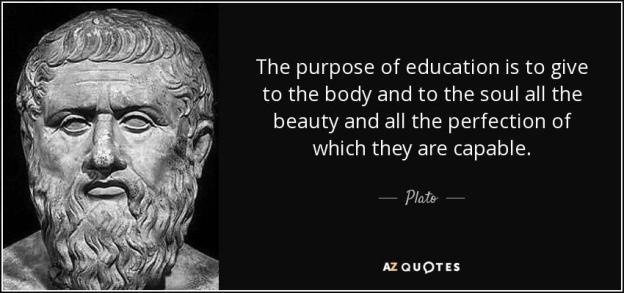People decide to homeschool because they feel traditional education is not best for their children, but there are a staggering number of approaches to education. Before you begin to hammer together a curriculum, you have to lay out your educational philosophy. Why don’t you want to enroll your kids in a public school? What is missing from traditional education that you want for your children? What do you feel is the purpose of education? How do your children learn best?
I, for instance, feel very strongly that public schools emphasize memorization over learning. I think instructing children in large classes forces every child to study at the wrong pace for their individual needs. I think public schools place too much significance on performance scores and grades.

I do not care how my children rank in graduating class of 385 students. Kids at the top in public education are not the smartest in their class, nor the most talented. They are simply the best students, capable of most consistently following instructions and producing the required results. GPAs and class rank are merely a rating of an individual’s performance as a cog in the machine.
I don’t want my children to be cogs. I want my children to be masters of their own minds. Education should equip a person to have a rich and rewarding internal life, no matter what their position in society. Whether my children grow up to be diesel mechanics or software developers, I want them to have interesting thoughts to keep them company.

These are the values at the heart of my educational philosophy. When it comes to the content of our curriculum, I find the Charlotte Mason method most appealing. The CM method boils down to teaching students how to think rather than what to think, exposing them to all the best works of literature, poetry, philosophy, and art and letting them openly explore this “feast for the mind”.
Charlotte Mason taught in the late 19th century and had a an intuitive talent for pedagogy. She founded a school and authored a six-volume book series on teaching. If you are interested in learning more about Charlotte Mason’s methods, her books are available unabridged and completely free at Ambleside Online. AO also offers a complete version of Mason’s writing paraphrased in contemporary terms. (AO is not secular, but still an excellent CM resource to which I refer often)
AO also offers a complete version of Mason’s writing paraphrased in contemporary terms. (AO is not secular, but still an excellent CM resource to which I refer often)
I am drawn to the values at the center of CM homeschooling, but I find the book lists and STEM content in Ambleside Online are lacking. My curriculum is a hybrid that borrows from Charlotte Mason, but makes use of digital media and employs thematic units. Unit studies help me focus my lesson plans and they help the kids make connections between subjects with real-world applications.
If you are just starting, and you don’t know which educational method fits you, I strongly suggest taking this little quiz. You’ll see how your values match up against several educational philosophies and learn which ones fit best. You can then work your own homeschool curriculum around those philosophies.